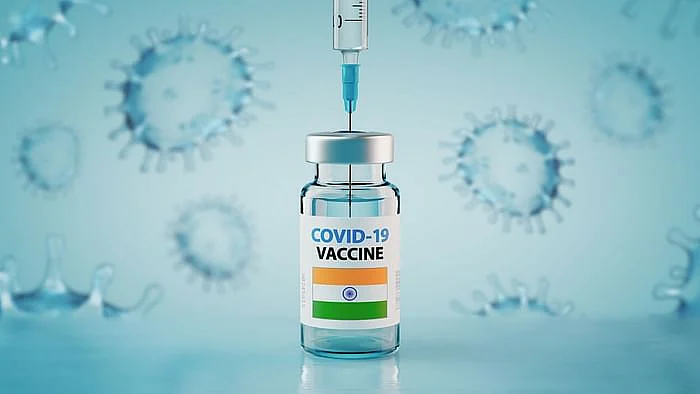
Zydus Cadila Vaccine: How Is It Different? How Safe is It?
What kind of a vaccine is it? How does it compare to Covaxin and Covishield? Here’s all you need to know.

advertisement
(This was first published on 5 March 2021 and has been republished from The Quint’s archives as Zydus Cadila's ZyCoV-D vaccine is set to complete it phase III clinical trials.)
Zydus Cadila on Friday, 14 May said that the company plans to make five crore doses of its COVID-19 vaccine – ZyCoV-D – by the end of 2021. Developed at Zydus’ Vaccine Technology Centre in Ahmedabad, ZyCoV-D will be India’s first indigenously made DNA vaccine against COVID-19.
Although the roll out of the DNA-based COVID vaccine could help bolster the nation's slowing inoculation drive, it may be too soon to rejoice.
The Zydus Cadila vaccine is currently in phase III of clinical trials, and the data from this trial is yet to be released.
What kind of a vaccine is it? How does it compare to Covaxin and Covishield? When will we get it? FIT gets you up to speed on everything we know about the vaccine.
What type of vaccine is ZyCoV-D?
ZyCoV-D is a Plasmid DNA vaccine.
The DNA (and RNA) vaccines—a relatively new technology developed for the first time only in the 1990s—don't introduce a weakened form of the pathogen like traditional vaccines.
The Zydus vaccine is the first DNA vaccine to be produced in India.
In theory, DNA vaccines produce the same results as mRNA vaccines, and so the efficacy of the Zydus vaccine too is likely to be in the realm of the other mRNA vaccines already in the market, including Moderna, Pfizer, and Johnson & Johnson.
Furthermore, the (DNA vaccine) platform can be rapidly used to modify the vaccine in couple of weeks in case the virus mutates to ensure that the vaccine still elicits protection.
At what stage is the vaccine?
In July of 2020, Cadila Healthcare Limited announced that their vaccine for COVID-19, named ZyCoV-D, successfully completed preclinical development and had received permission to initiate human clinical trials.
On 24 December, the company submitted the results of Phase I/II clinical trials conducted in over 1000 healthy adult volunteers.
On 3 January, they announced that their vaccine had received approval from the Drugs Controller General of India (DCGI) to start Phase III Clinical Trial of ZyCoV-D.
In their latest statement, the company informed that the dosing for the Phase III clinical trials has started in 60 locations, on 30,000 healthy adult volunteers.
The results of the trial, and the actual efficacy of the vaccine, are yet to be announced.
How is it different from Covaxin and Covishield?
- Zydus vaccine has the same goal, and is likely to have the same results as the two existing homegrown vaccines, but where it differs is in the way it works.
Covaxin is a whole inactive virus type vaccine, and Covishield is a non-replicating viral vector type vaccine.
Both of which are relatively traditional, well established types of vaccine technology that work by introducing a part (in the Oxford vaccine it is the gene protein spikes found on the virus’ surface) or whole of the virus in a ‘harmless’ form to trigger the immune system into producing a large number of antigens to fight the actual virus.
The Zydus vaccine, as explained, is a DNA vaccine that delivers only a specific set of instructions to our cells that instructs our immune system to recognise and respond to the virus.
The Zydus vaccine is also India’s first plasmid DNA vaccine.
- Unlike Covishield and Covaxin, ZyCoV-D is being tested as a 3 dose vaccine.
- While it can be stored in normal refrigerator temperatures of 2 - 8 degrees Celcius like Covishield and Covaxin, the company also claims that the vaccine is thermostable at up to 25 degrees.
How safe is it?
While Phases I and II of the trials showed no side effects, it's still too early to say how it compares to the other two vaccines that have cleared all three phases of clinical trials.
In the results submitted by the company, ZyCoV-D was found to be safe, well-tolerated, and immunogenic in the Adaptive Phase I/II clinical trials.
“The Phase II study of the vaccine ZyCoV-D had been conducted in over 1000 healthy adult volunteers. The vaccine was found to be safe and elicited a strong immunogenic response,” it reads.
However, in the absence of date from the phase 3 trials, experts are skeptical of approving the vaccine for public use.
“I don't think we should be licensing vaccines where we have no indication of whether they work or not," says Dr Kang.
When will it be available?
If approved, according to Sharvil Patel, the company plans to begin production in June and launch the product in the market soon after.
The company aims to produce 5 crore doses by the end of the year and is also looking to ramp up production, if possible.
(This was first published on FIT and has been republished with permission.)
(At The Quint, we question everything. Play an active role in shaping our journalism by becoming a member today.)
- Access to all paywalled content on site
- Ad-free experience across The Quint
- Early previews of our Special Projects
Published: 05 Mar 2021,03:26 PM IST